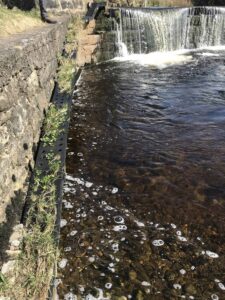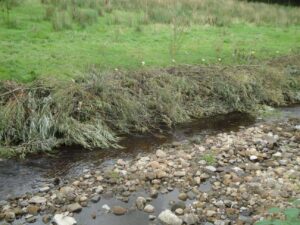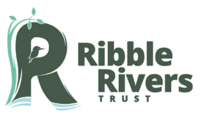Work experience
By Dan McGibbon

As a third year Geography student at university,gaining work experience has become a must for progressing from a student to someone who is in full time work. The Ribble Rivers Trust was kind enough to offer me some work experience and it’s somewhere I highly recommend if considering for a placement choice. Getting involved with the Ribble Rivers Trust offered a great opportunity to gain experience in catchment management and to see how techniques I’ve learnt at university are implemented to real-world scenarios.
The Trust carries out a wide variety of tasks to improve the catchments flowing water, from fish population monitoring and in-depth studies on fish movement, through to working with farmers to change land use along riverbanks, eradicating invasive species and increasing public awareness of catchment issues.
During my time with the Trust I helped with a variety of tasks including but not limited to, scouting sites for placing water level monitors, collecting data from existing sites, maintenance work on existing Weirs and adorning eel and fish passes, learning how GIS and CAD is used in real world projects, collected materials from various sources to be recycled into soft engineering defences and tree planting along riparian margins. Tree planting is mostly carried out by the Trust during the winter months as the tree roots are dormant and have a higher survivability rate than in summer, but I was lucky enough to be able to help with the last phase at one site. I quickly learnt that planting trees along river courses not only stabilises the banks from erosion while also intercepting and increasing water drainage into the soil, but provides habitat for wildlife, captures carbon from the atmosphere, filters water and can mitigate the affects of global warming through creating shaded sections over the river subsequently lowering the water temperature for fish and invertebrates.

I also discovered that the public and their actions can have a massive impact on the local river systems, and how the Trust has established a great relationship with a number of farmers to reduce pollutant levels. I learnt this on a visit to a local farmer who had kindly given the Trust permission to recycle left over brash clippings to create brash bundles to be used in reducing erosion on river meanders; this is achieved through placing the bundles along river margins, slowing the river flow to induce sediment deposition and to reduce the erosive effect of the river flow. Furthermore, the land owner had allowed several of his fields to flood, incited by the RRT informing the land owner of stewardship schemes available, thus creating habitat for breeding birds and reducing the flood risk of the river downstream by holding up water from entering the main river channel. This highlighted to me the great work that the Trust is doing in managing the whole catchment area for the benefit of both its human population and flora and fauna.
Overall, I’ve had a great time with the Trust and their amazing staff and have gained some amazing incites and experience into Catchment management which will help me massively in the future and I would like to thank the team for being so accommodating towards me.

